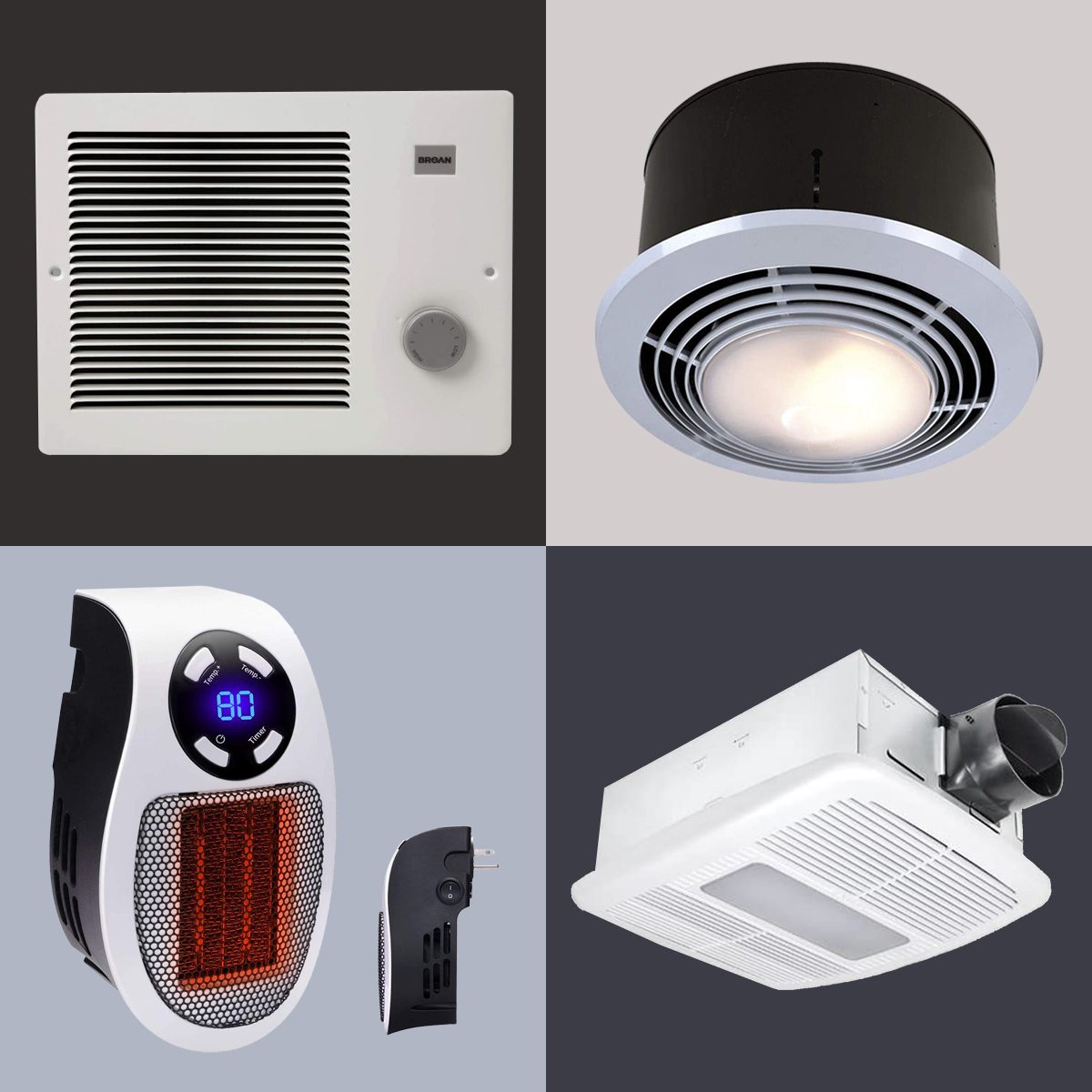ⓘ
What to Look for When Buying a Bathroom Heater
Safety
- For plug-in heaters, make sure it has an Appliance Leakage Current Interrupter (ALCI) plug. This ensures it will shut off if it falls into a sink or water, which greatly reduces any chance of electrical shock. Most portable space heaters do not have an ALCI plug, which is why you shouldn’t use just any heater in your bathroom.
- If you have pets or small children, consider a wall- or ceiling-mounted unit so it’s out of reach. Some heaters become hot to the touch and are potentially dangerous for curious fingers and paws.
- Always plug your corded bathroom heater into a Ground Fault Circuit Interrupter (GFCI) outlet. Identified by their “test” and “reset” buttons, these shut off the circuit if the electrical flow turns irregular. GFCIs have been mandatory in bathrooms since 1975, but if you live in an older home, double-check your outlets.
Installation
- Will you be installing your heater yourself? Carefully review the installation requirements and instructions for your heater. If it requires more electrical work than you’re comfortable with, leave it to an electrician.
- Mitchell notes that prices vary depending on the type of heater. A simple plug-in model won’t have any installation costs, while a hard-wired wall-mounted unit or radiant floor heating may require professional assistance. “Generally, a basic installation might range from $100 to several hundred dollars, not including the price of the heater itself,” he says.
Heat output
- Depending on the size of your bathroom, you might require a more powerful heater than you think. Generally, ceiling- and wall-mounted units pump more heat than smaller portable units.
Why Trust Us
You can confidently rely on the information presented in this article, as it stems from my extensive experience in the home improvement, DIY and appliance spaces. With more than five years spent as a residential and commercial carpenter in NYC, specializing in custom furniture construction and installation, I bring a wealth of real-world expertise and hands-on training to the table. As a freelance writer, I leverage my in-depth knowledge to craft thorough product reviews, insightful buying guides and practical how-to articles for Family Handyman. My work has also been featured in reputable outlets, such as CNN Underscored, Business Insider and Popular Mechanics.
For this article, I consulted with HVAC technician and plumbing expert, Josh Mitchell, who founded Air Conditioner Lab when he saw how confusing it was to shop for these common home appliances. He then began experimenting with ACs, heaters, air purifiers, dehumidifiers and humidifiers to find the best options to help people solve their HVAC problems. Mitchell also started other home improvement sites, the Plumbing Lab and Paint Sprayer Judge.
I also got advice from Brad Roberson, who has almost 20 years of experience and is the president of Aire Serv, a Neighborly company that provides HVAC services to residential and commercial clients. Caitlyn Fitzpatrick, an editor and writer since 2014 and a content strategist in the commerce journalism word since 2017, helped update this piece.
How We Found the Best Bathroom Heaters
As shopping experts, our only job is to help you find a winning product. We start with the research and reporting basics—what products are made of, what they look like and how much they cost—to ensure that we’re only recommending the buys that are worth your time and money. Then, we research the features that speak to the product’s quality, taking advice from industry insiders and subject matter experts on what makes a product a smart value (or worthy of a splurge). Finally, we do the work of combing through user reviews to see how real people interact with the product, and if it stands up to the test.
FAQs
What heater can I put in my bathroom?
The three general types of bathroom heaters are portable, wall-mounted and ceiling-mounted models. Portable heaters offer flexibility and can easily be moved to different locations. Wall-mounted heaters are compact, quickly warm up small spaces and are typically installed high on the wall to avoid water exposure. Ceiling-mounted heaters are popular for their powerful output and discrete design—and because they don’t take up any valuable floor space.
What type of heater is best for a bathroom?
According to Roberson, it’s best if your HVAC system vents to the bathroom. However, electric wall heaters or radiant heaters are practical alternatives. “These heaters are compact, provide quick warmth and are designed for smaller spaces like bathrooms,” he says. Additionally, they’re often equipped with safety features like overheat protection, making them a smart pick for powder rooms.
What is the most efficient heater for a bathroom?
Roberson says infrared heaters are an efficient and cost-effective choice. “Infrared heaters directly warm objects and people in the room, providing targeted heat,” he explains. Mitchell agrees, noting that these heaters provide immediate warmth, which is beneficial in a typically cold, tiled room. “It’s also more energy efficient, as it doesn’t heat the air, which can quickly escape in small, often ventilated spaces,” he says.
Is it safe to leave the bathroom heater on all night?
Whenever you have a heater, you have a potential fire hazard, as you never know when it could overheat. It’s best to turn off a bathroom heater before going to sleep.

























